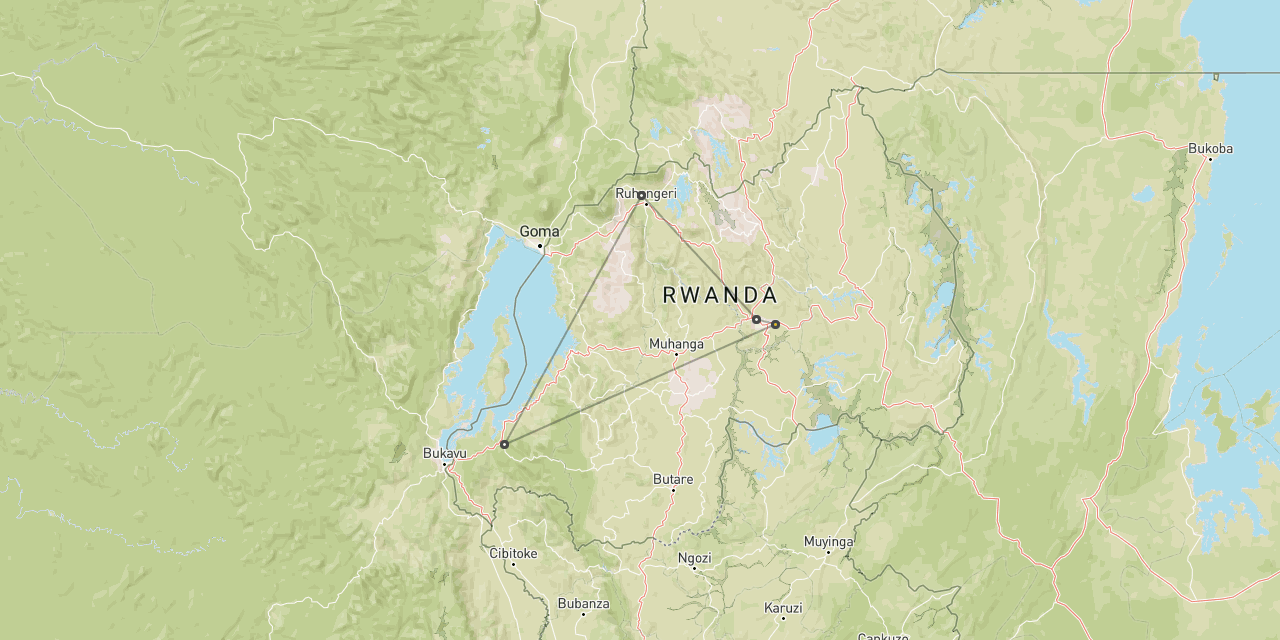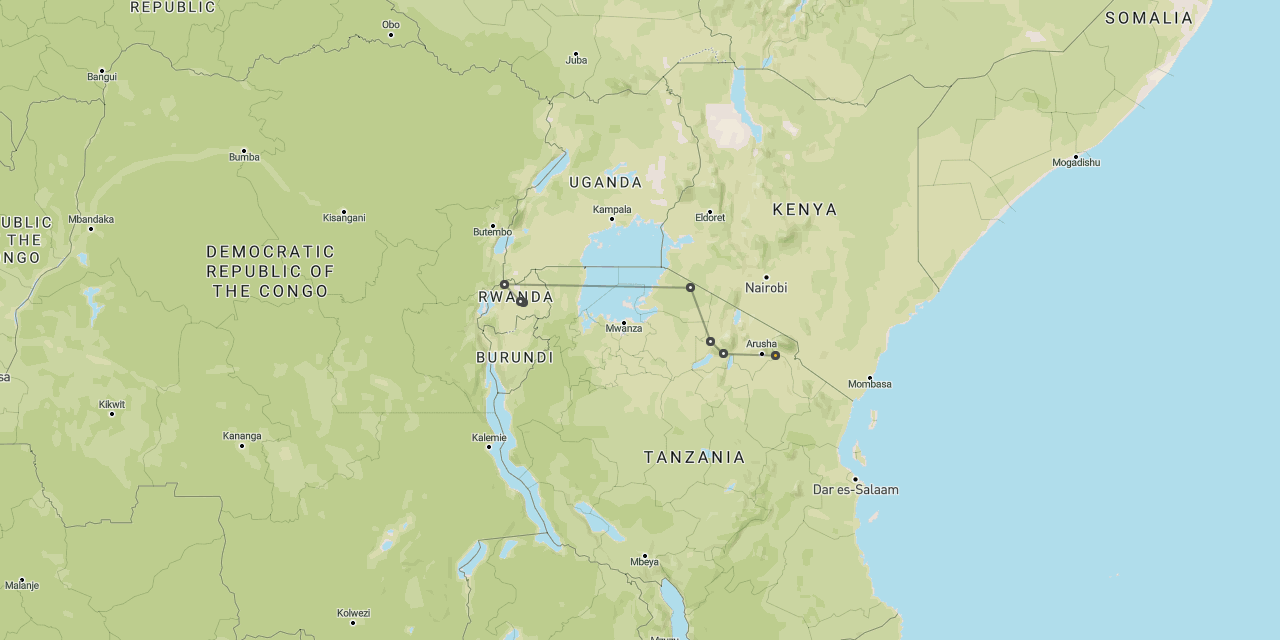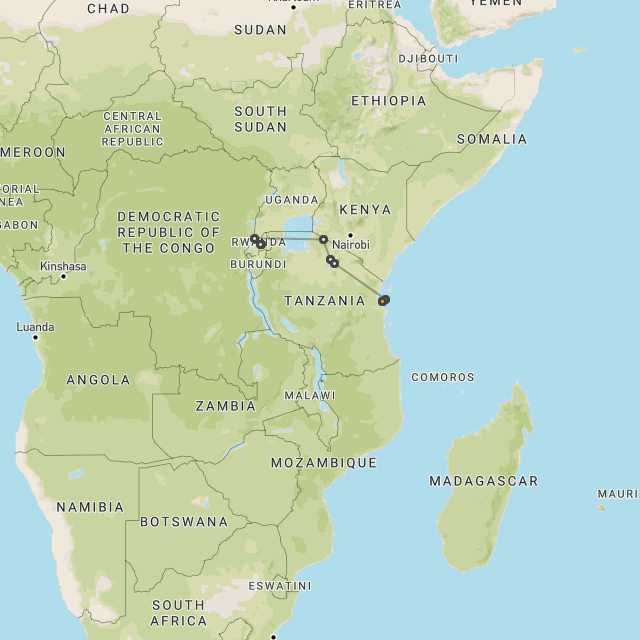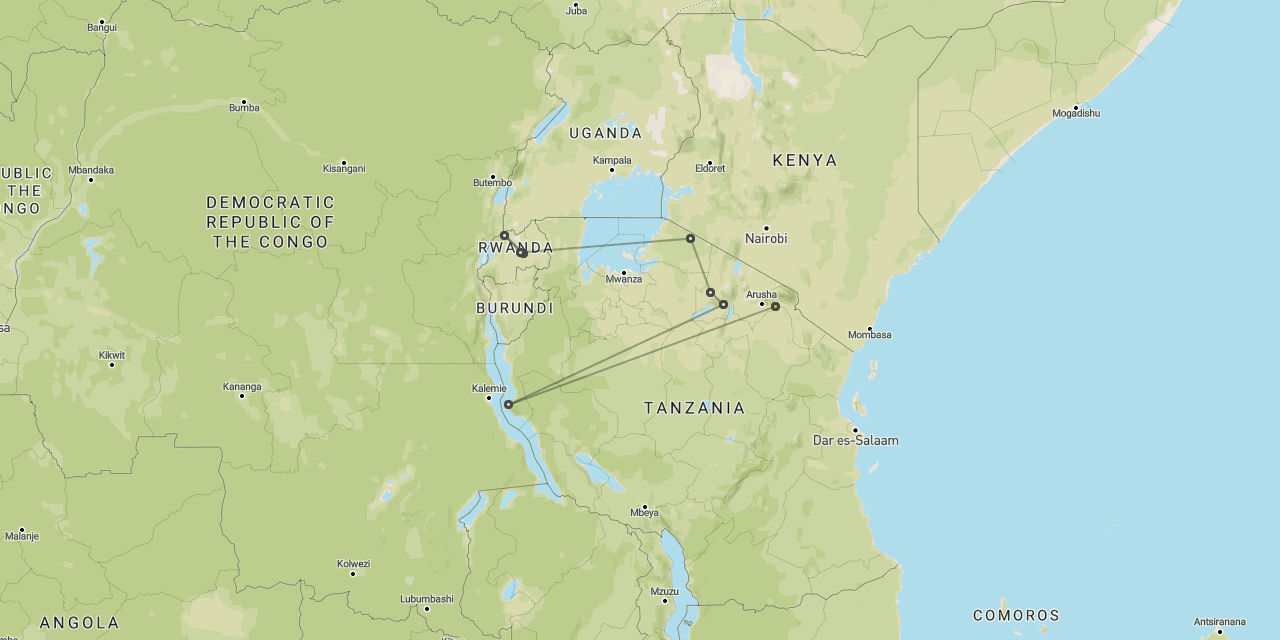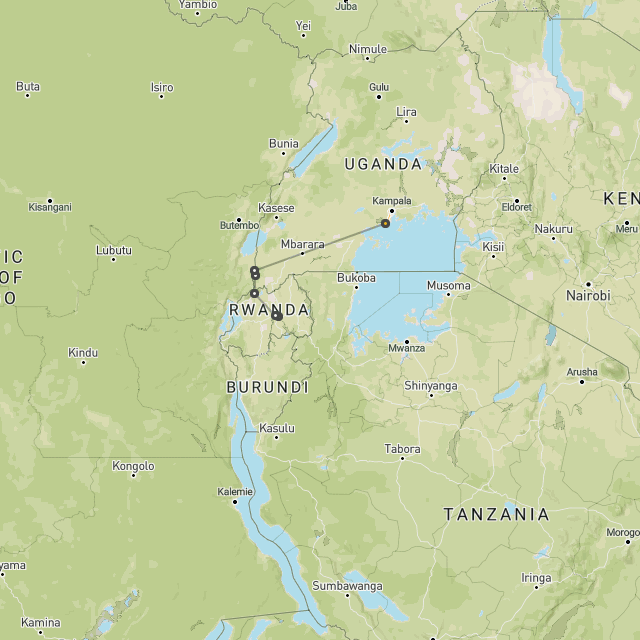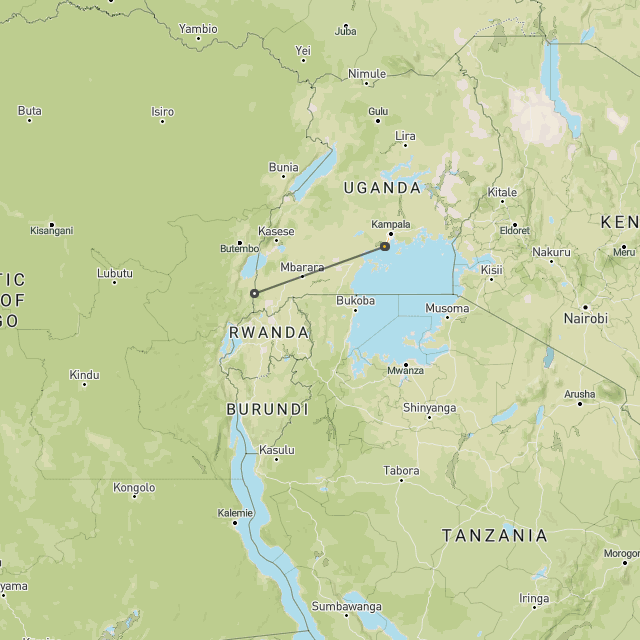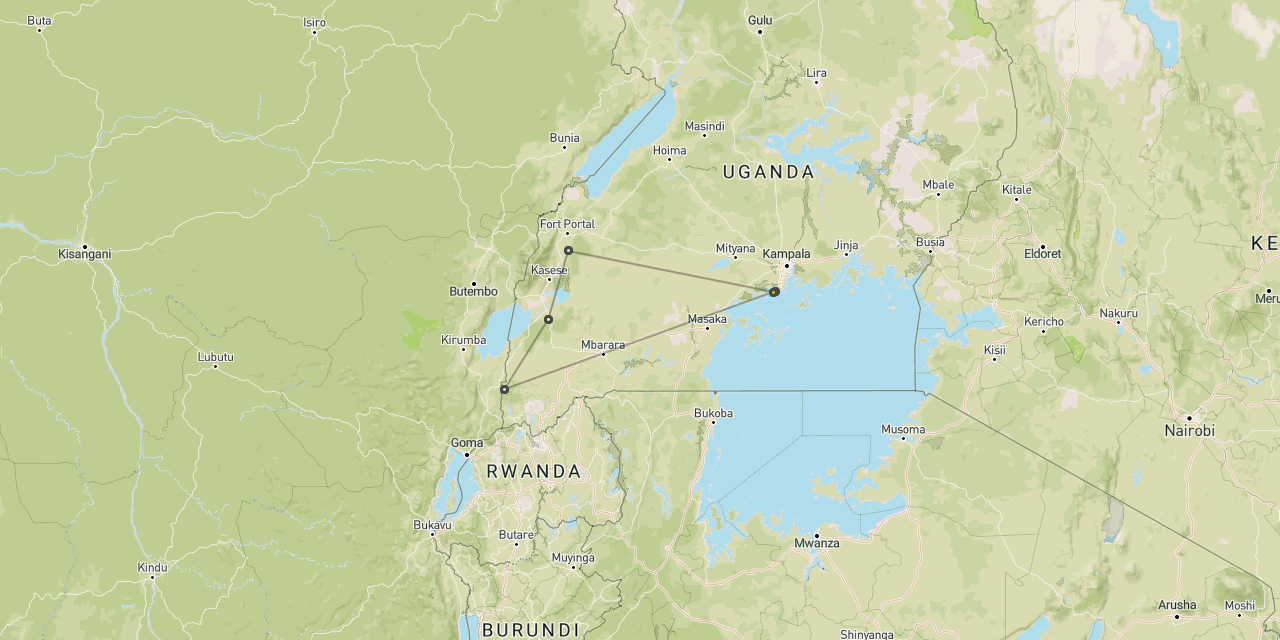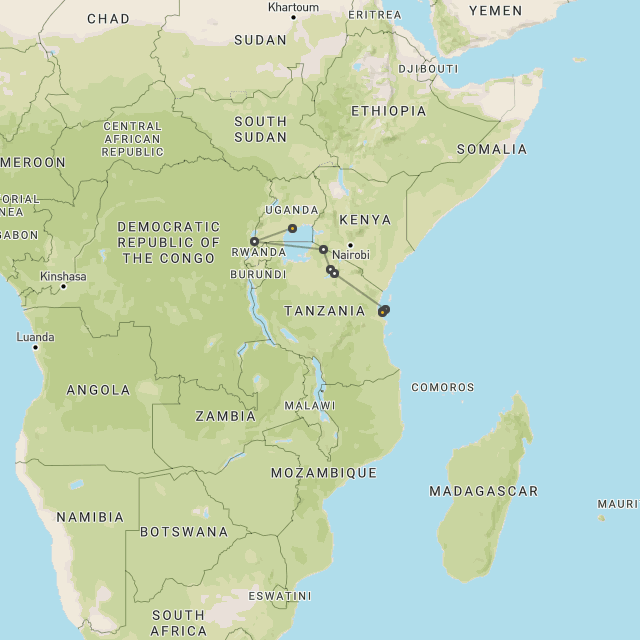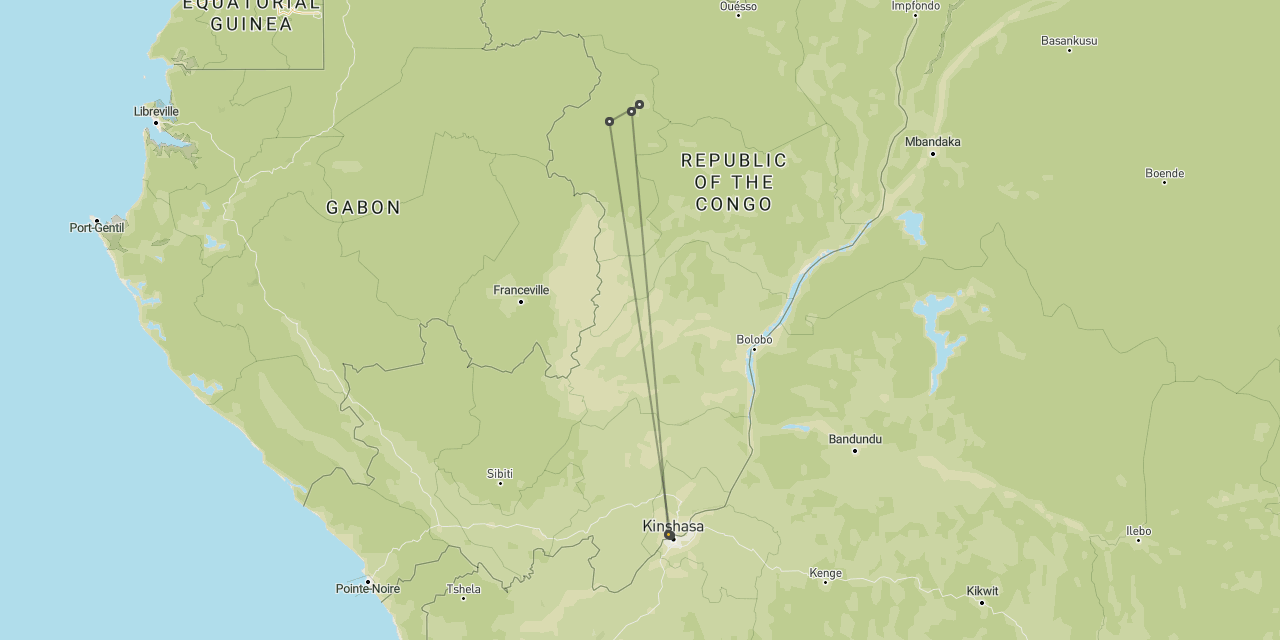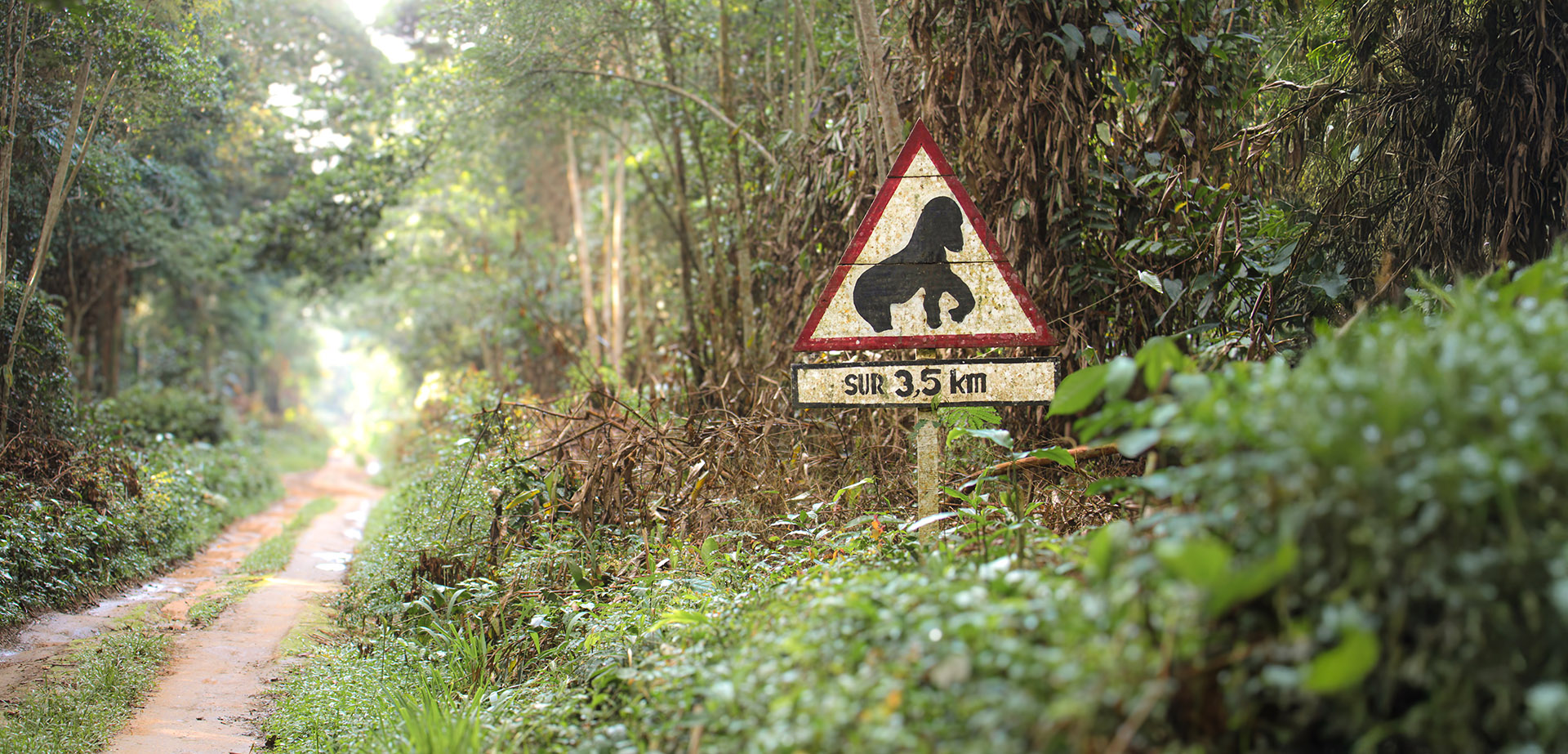
Gorilla safaris
Gorillas
are the largest and most powerful
of the great apes
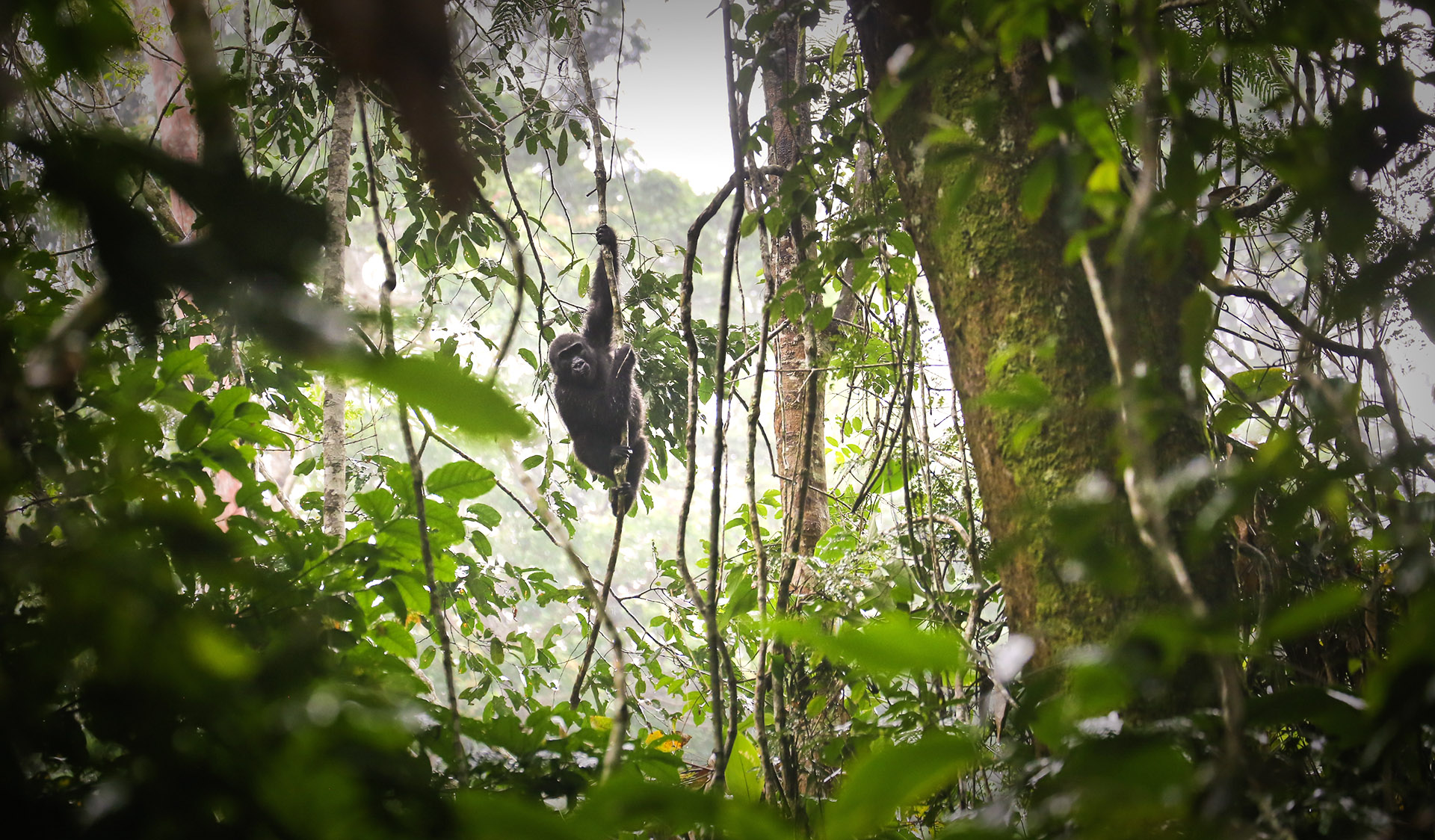
gentle and usually docile herbivores
Gorillas are the largest extant genus of primates. They are ground-dwelling, predominantly herbivorous apes that inhabit the forests of central Africa.
The DNA of gorillas is around 98% identical to that of humans, making them our second closest relatives after chimpanzees.
The fact that there are so few of these creatures remaining in the wild is something about which all mankind should be utterly ashamed. If it weren’t from the revenues generated by tourism, most likely they would have become extinct in the wild by now. Instead they are starting to make a slow but steady recovery.
The future of gorillas is in our hands. Your visit will represent a significant contribution to their protection.
Frequently asked questions
The experience of meeting gorillas in the wild can be truly extraordinary. Coming face to face with an animal which is so clearly intelligent and thoughtful is really unlike any other animal encounter. It’s hard to put into words.
Around 20% of the total gorilla population lives in family groups which have been habituated to the presence of humans. This process takes about two years and involves researchers spending all day every day in their company.
Habituated gorillas are definitely not tame, but they are at least tolerant of people, usually to a distance of around ten metres.
With the majority of gorillas being so gentle and docile, it is no surprise that it’s the huge and aggressive silverback males that grab all the attention, with their constant terrifying displays and stares that could kill.
A serious encounter with a silverback is genuinely shocking and certainly gets the adrenaline flowing. The knowledge that he could literally tear you limb from limb is tempered by the knowledge that this hardly ever happens.
the terrifying aggression of the silverback
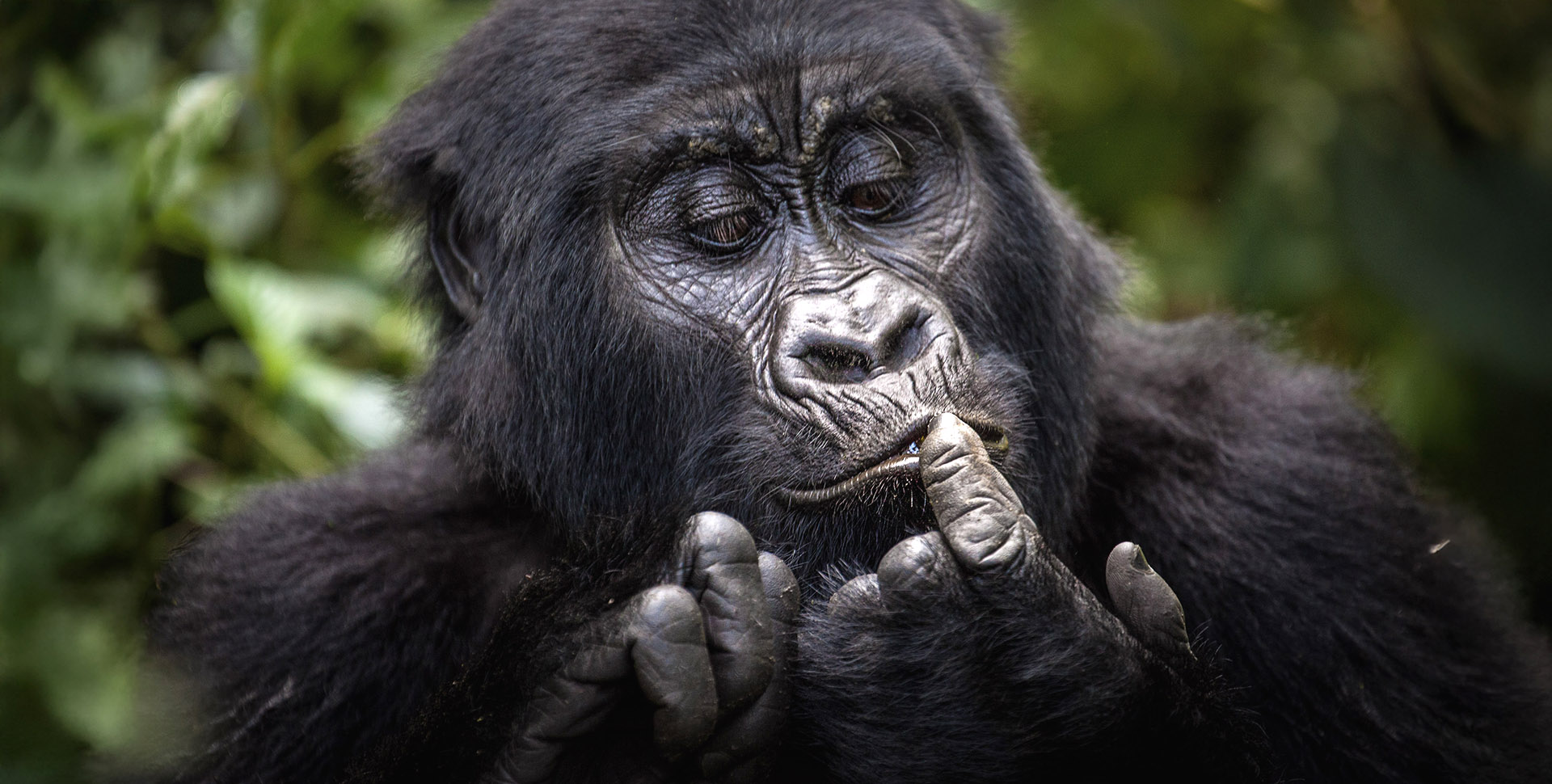
In order to visit the gorillas you need to travel, usually by air, to one of the key areas, staying in one of the specialist lodges nearby for usually 3 to 4 nights.
You will need to pre-purchase at least one gorilla permit, which entitles you to participate in a guided hike into the forest to, hopefully, meet one of the habituated families. The whole experience typically lasts 3 to 7 hours, depending on the specific location of the gorillas at the time.
The hike can be easy or tough, but visitors should be relatively fit and well equipped for this kind of outdoors activity.
The actual time spent with the gorillas and the quality and intimacy of each sighting can vary enormously. The chances of an encounter of some sort is very high, over 90%, but the chances of getting up really close and personal is perhaps more like 60-70%.
Many of our guests choose to buy two or more permits in order to increase their chances of a high quality sighting and so that they can visit more than one family. If you draw a complete blank on your first trek then the parks authority will usually be able to get you onto a really accessible group for your second trek.
Gorilla permits are very expensive and are often in short supply. Having said that, the USD 500-1000 you will need to lay out for a permit will be some of the best money you’ll ever spend.
It’s critical that you book your trip as early as possible, not only to ensure getting permits, but to make sure that you get permits for one of the more interesting, accessible and reliable families. We usually recommend planning at least six months in advance, preferably a year ahead for the Dec-Jan and Jul-Sep high seasons.
The minimum age for trekkers is fifteen years old.
You can find more detailed advice on gorilla trekking on the Bwindi Forest and Virunga Mountains pages.
book as far in advance as you can
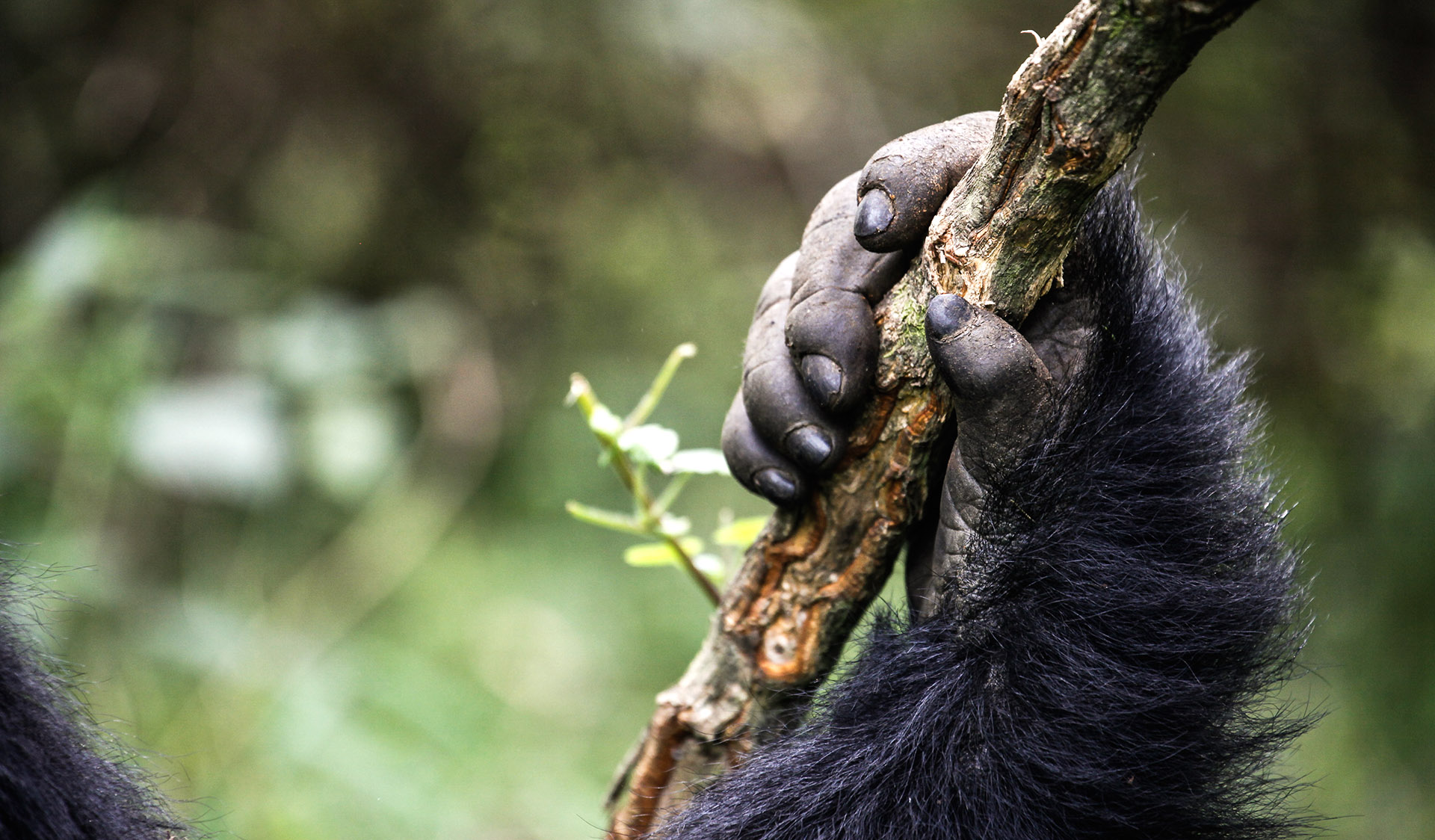
The main difference between mountain gorillas and their lowland cousins is that they have a very luxurious coat of thick fur to keep them comfortable at higher elevations.
There are estimated to be around 1060 animals living in the wild, largely in a small border area between Rwanda, Uganda and DR Congo.
There are two main locations for visiting these mountain gorillas, Virunga Mountains in Rwanda, where there are presently 7 habituated families and Bwindi Forest in Uganda, where there are presently 9 habituated families.
The core gorilla experience in the two locations is essentially very similar. We tend to recommend Rwanda to guests who are looking for very high quality lodge accommodation, whilst Uganda tends to be better for slightly more outdoorsy guests.
Both locations can be combined with chimpanzee areas, as well as modest savanna safari. They are also both commonly combined with safari and tropical beach areas in Kenya or Tanzania.
It’s also possible to combine Rwanda and Uganda with other countries across Africa, although the connections tend to be a good deal more sticky.
the woolly ones
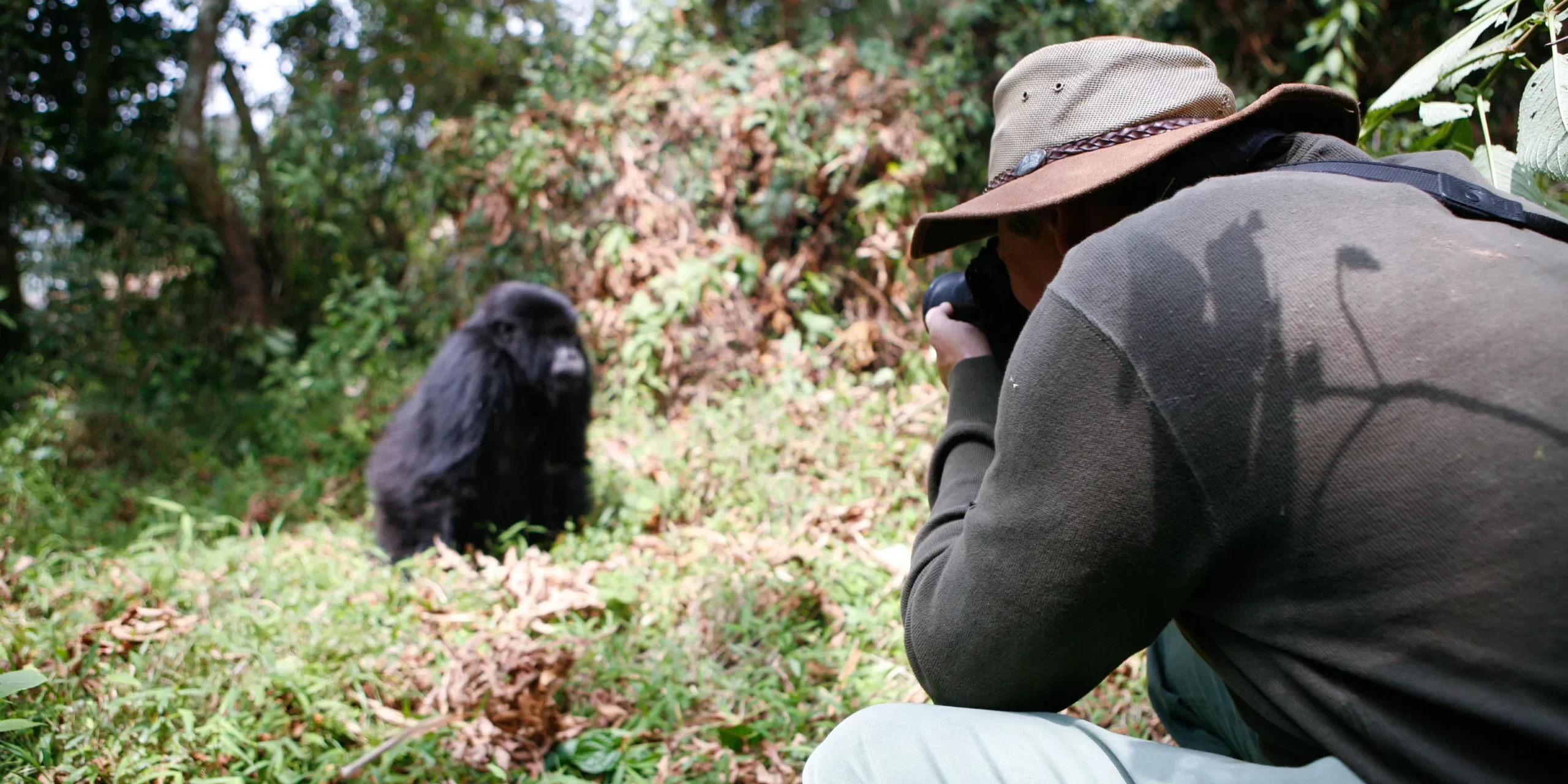
Lowland gorillas inhabit the forests of Congo Brazzaville, Gabon and Cameroon.
These guys are slightly smaller than their mountain cousins, but are no less impressive when encountered out in the jungle. Thankfully they are much more numerous, with around 95,000 individuals thought to remain in the wild.
The only location where lowland gorillas can be reliably encountered at close quarters is in the extremely remote and little-visited Odzala Kokoua in Congo Brazzaville.
This location is extremely expensive to visit, several times the price of the mountain gorilla locations above and there is just one semi-habituated family. However the project is in desperate need of your support, so if you have the funds available, then we would definitely recommend it.
the short-haired cousins
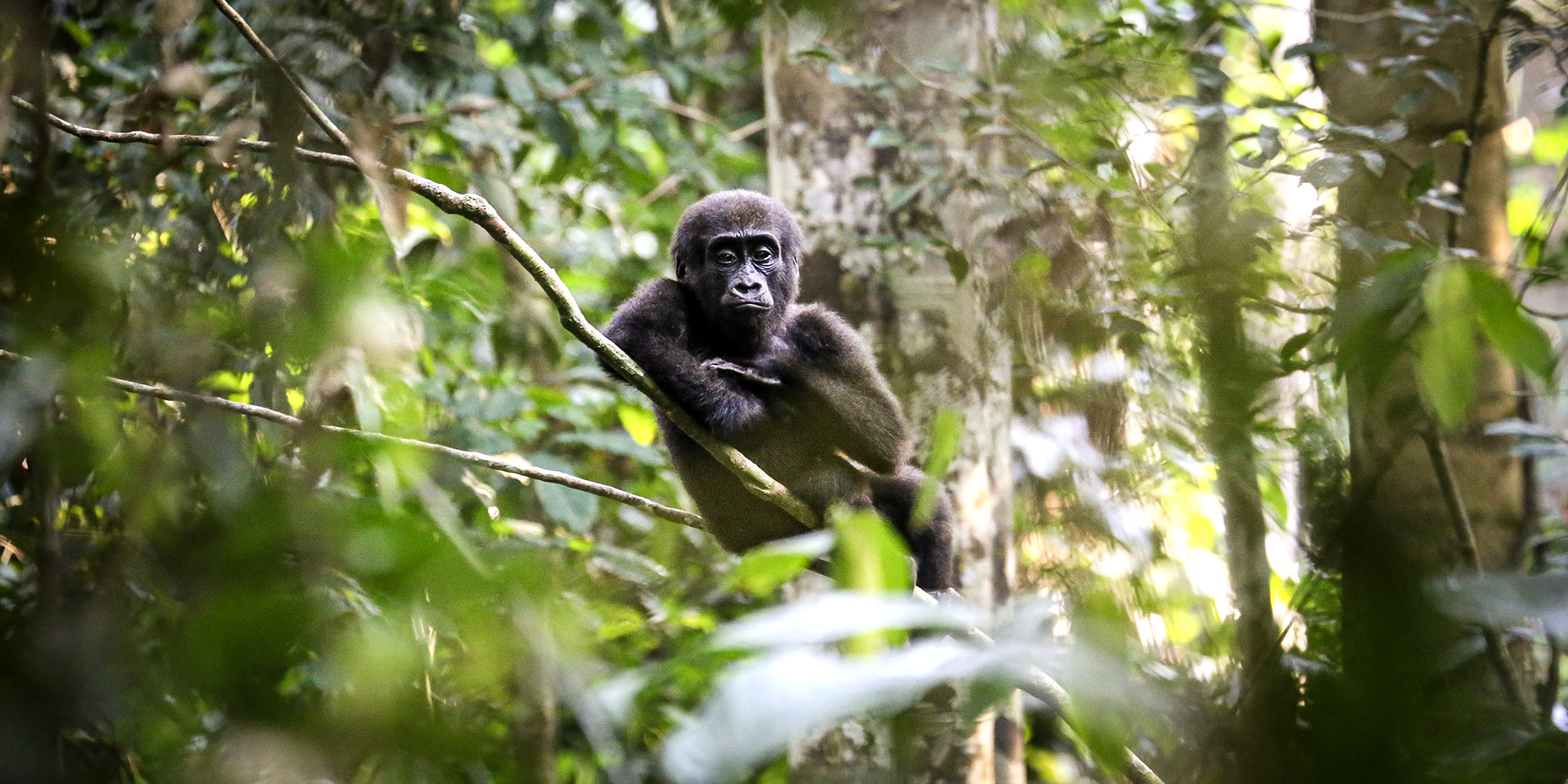
let us know about your specific interests
and we will help build an amazing safari
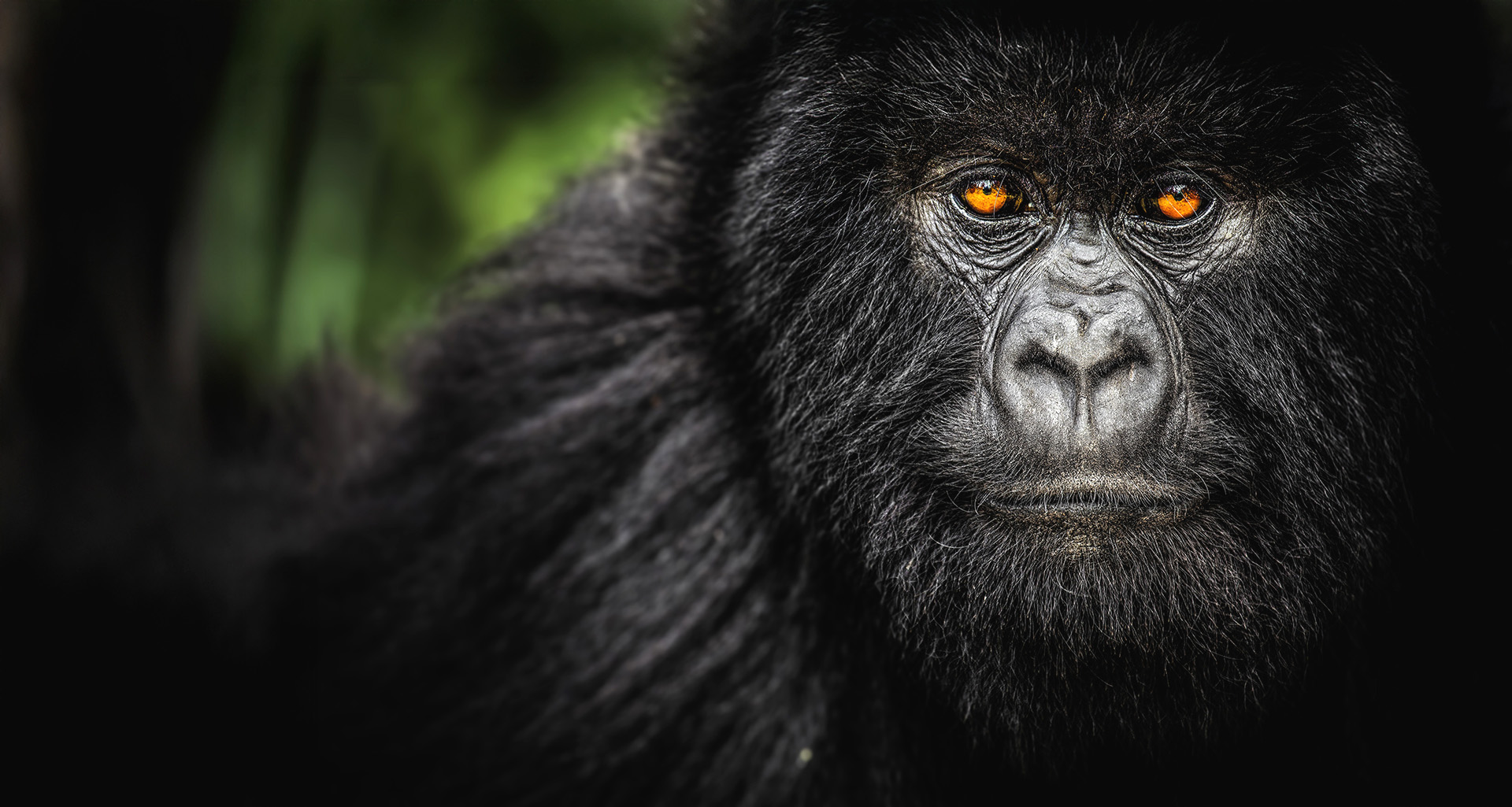
Extraordinary tailor-made adventures,
from earthy and edgy to easy and extravagant
From around USD 2500 per person, you set the ceiling
Sample Trips
Here are some of our popular trip shapes
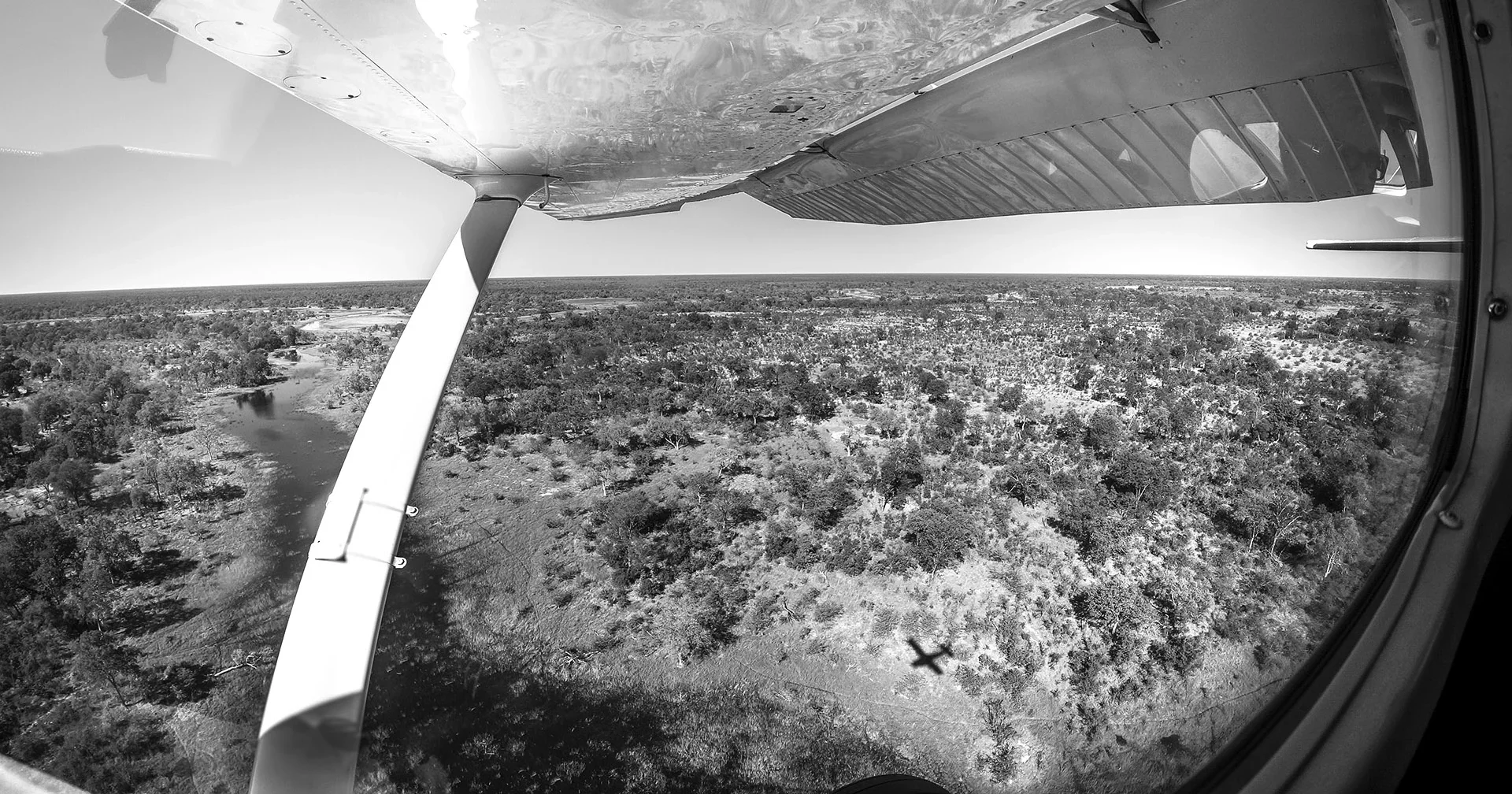
Get started on your trip
It’s never too soon to get in touch, we are here to help with every stage of your planning.
